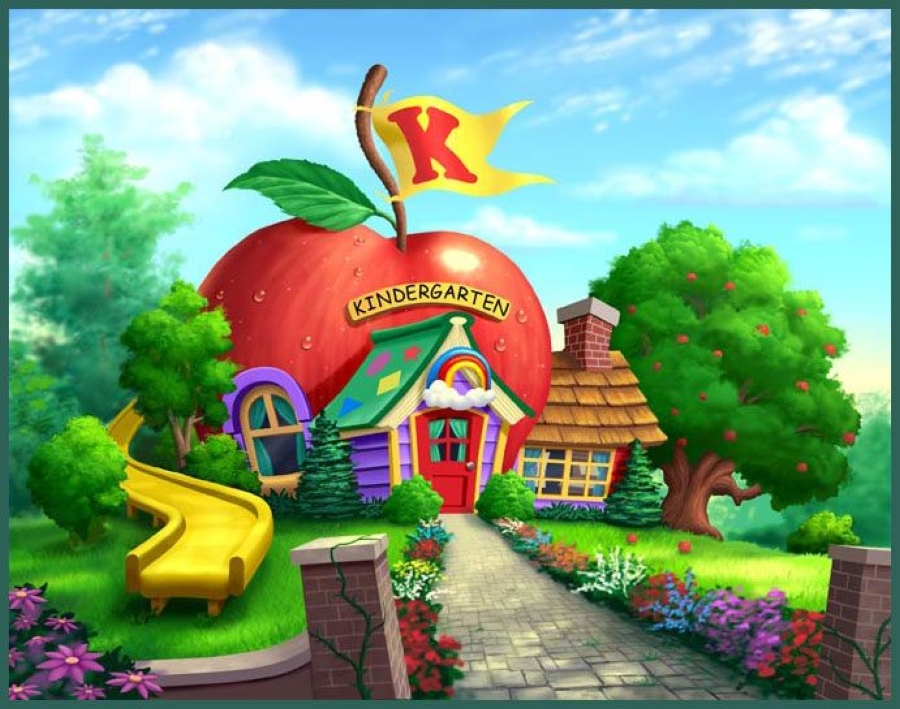
Stepping into kindergarten marks a significant milestone in a child’s life, filled with excitement, exploration, and new beginnings. This magical journey introduces young learners to the vibrant world of education, where each day brings fresh adventures and important lessons. From learning to share and cooperate with peers to discovering the joy of storytelling and the wonders of numbers, kindergarten sets the foundation for lifelong learning.
In this nurturing environment, children are encouraged to explore their creativity and curiosity. Through play-based activities, they develop critical social skills and enhance their cognitive abilities. Parents often marvel at the transformation as their little ones come home bursting with new knowledge and experiences, ready to share the fascinating discoveries they have made. Kindergarten truly ignites a passion for learning that will inspire children for years to come.
The Importance of Play in Learning
Play is a fundamental aspect of childhood and serves as a powerful tool in the learning process. In kindergarten, children engage in various forms of play that stimulate their imagination and creativity. Through activities like building with blocks, role-playing, and engaging in art projects, children explore concepts such as numbers, colors, and shapes in a playful context. This hands-on experience makes learning enjoyable and helps to embed knowledge more deeply than traditional methods.
Moreover, play fosters social skills that are essential for children’s development. When children play together, they learn about cooperation, sharing, and empathy. These interactions help them navigate relationships and develop communication skills. In a kindergarten setting, group play activities encourage children to work as a team, solve problems, and resolve conflicts, all of which are crucial for their overall well-being and social competency.
Additionally, play supports emotional growth by providing a safe environment for children to express themselves. During play, children can explore different roles and scenarios, which allows them to process their feelings and experiences. This emotional awareness is important in developing resilience and self-confidence. As children play in their kindergarten environments, they build a foundation not only for academic success but also for lifelong social and emotional skills.
Building Social Skills
Kindergarten serves as a vital stage for young children to develop essential social skills. In this environment, they interact with peers for the first time in a structured setting, which allows them to practice sharing, taking turns, and collaborating on group activities. These interactions teach children the importance of empathy and understanding, as they learn to navigate different personalities and emotions. This foundation is crucial as they begin to form friendships and build lasting social connections.
Jasle
Through play-based learning and group projects, children in kindergarten experience the joys and challenges of teamwork. They start to recognize the value of communication, discovering how to express their thoughts and feelings while also listening to others. Such experiences not only enhance their social abilities but also boost their confidence in approaching new situations and making new friends. This learning process is filled with fun, laughter, and playful exchanges that make socialization an enjoyable experience.
As children engage with their classmates, they also learn conflict resolution skills. In a kindergarten setting, it’s common for disagreements to arise, whether over toys or ideas during group work. These moments present valuable opportunities for educators to guide children in finding solutions together, encouraging them to articulate their feelings and understand different perspectives. By addressing conflicts in a supportive environment, kindergartners emerge with stronger interpersonal skills, laying the groundwork for healthy relationships in the years to come.
Fostering Independence
Fostering independence in kindergarten is essential to nurturing a child’s confidence and self-reliance. As children transition from home to school, they encounter new routines and social dynamics that require them to engage in decision-making, problem-solving, and self-management. Encouraging kids to choose their activities or help with classroom tasks allows them to feel empowered and increases their willingness to explore and learn. This sense of autonomy helps children develop critical life skills while reinforcing that their choices matter.
Creating an environment that promotes independence involves balancing support and freedom. Teachers can guide children with gentle prompts, allowing them to take steps on their own while still providing the necessary assistance. For instance, rather than immediately stepping in to solve a conflict, educators can encourage children to express their feelings and brainstorm solutions together. This approach not only builds independence but also enhances social skills, teaching kids how to collaborate and communicate effectively with their peers.
Moreover, embracing routines and responsibilities in the classroom can significantly enhance a child’s sense of independence. Simple tasks, like choosing a book for reading time or deciding on a project to undertake, give children agency in their learning process. When children feel responsible for their choices, they are more likely to engage fully and take pride in their accomplishments. This foundational experience in kindergarten lays the groundwork for lifelong learning, as children learn that they are capable of steering their educational journey.
Engaging Curriculum Activities
In kindergarten, engaging curriculum activities are designed to ignite curiosity and foster a love for learning. Hands-on experiences, such as building with blocks or exploring nature, draw children into active participation. These activities are often structured around themes that resonate with young learners, providing context and excitement. For instance, a unit on animals may involve storytelling, creative arts, and even visits to local farms or zoos, allowing children to explore the topic through multiple avenues.
Music and movement play a crucial role in kindergarten. Activities such as singing songs, dancing, and participating in group games not only enhance motor skills but also promote social interaction. These rhythmic and physical experiences help develop coordination and encourage teamwork among peers. By integrating music into various subjects, educators create a dynamic environment where learning feels like an adventure.
Creative arts are also prominent in the kindergarten curriculum, as they allow children to express themselves and explore their imaginations. Activities like painting, drawing, and crafting support fine motor development while encouraging creativity. These engaging projects often link to other subjects, such as storytelling or science, making learning cohesive and fun. Through these artistic endeavors, children build confidence in their abilities and learn to appreciate the beauty of creation.
Parent Involvement in Kindergarten
Parent involvement plays a crucial role in the kindergarten experience, enhancing children’s learning and fostering a positive environment. When parents engage with their child’s education, it not only strengthens the bond between parent and child but also cultivates a sense of community within the classroom. By attending school events, volunteering, and communicating regularly with teachers, parents contribute to a supportive atmosphere that encourages children to thrive.
Moreover, parental participation reinforces the skills children are developing at school. When parents take the time to read with their children at home or help with art projects, they reinforce the lessons learned in the classroom. This collaboration between home and school is essential for children as they navigate their first steps into the world of education. A united front from parents and educators ensures that children feel secure and inspired to explore.
Lastly, parent involvement can significantly influence children’s attitudes toward learning. When parents demonstrate enthusiasm for education and actively participate in school activities, children are more likely to adopt a positive mindset toward their own learning journey. This early engagement can instill a lifelong love of learning, making the transition into more advanced educational settings smoother and more enjoyable. Thus, fostering strong partnerships between parents and educators is vital for cultivating happy, curious, and successful learners.






Recent Comments